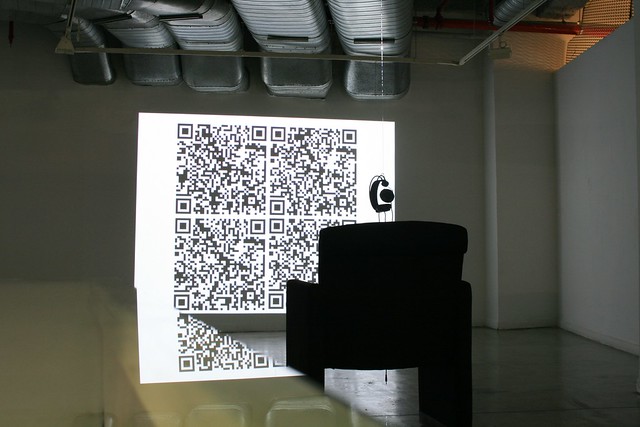 (several codes encountered in Madrid last week).
(several codes encountered in Madrid last week).
Alexis Madrigal has a good piece in The Atlantic about QR codes, their proliferation in advertising and their low adoption rate by users. Some excerpts I enjoyed
" This is a picture of a roller-skating horse named Jimmy. I think he is a great analogy to explain why QR codes, those little black-and-white squares in magazines that you're supposed to use as a paper hyperlink, continue to proliferate. Let me explain. (...) For now, though, we've got QR codes. And it appears we'll continue to have them. Don't be fooled, though: this is a novelty more than anything else. I think print magazine ads work and I think digital campaigns work. But when I look at a QR code, I don't see the future, I see a roller-skating horse. Advertisers deploying QR codes are like people in 1900 wanting transportation to be faster, saying to themselves, "Well, we've got horses and we've got roller skates -- I think we're on to something! It seems gimmicky, but we're innovating." Meanwhile, inventors in garages were building the first janky, bug-ridden automobiles, the Model T just a few years away."
Why do I blog this? Given my interest in technological trajectories, it's relevant to put things in perspective and see how they fit in the global picture. Will the QR code eventually work? Is it just a "bridge technology"? I don't know but there's something worth digging here. Also, make sure to read the comments, the arguments in there are quite insightful... the way people defend QR codes ("QR is a good technology for condensing lots of information into a small physical space") is sometimes very tech-oriented and does not account for issues related to human usage.